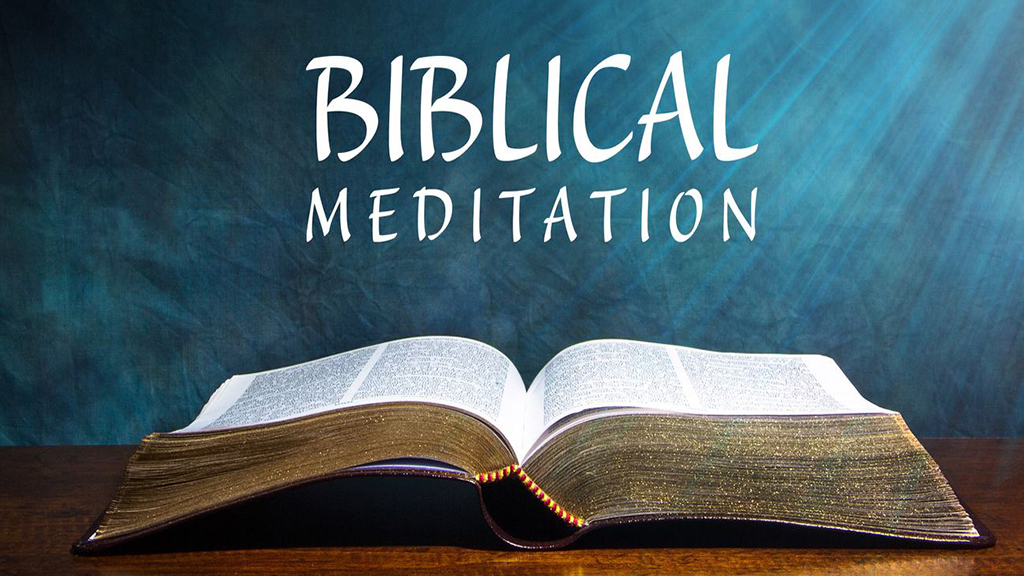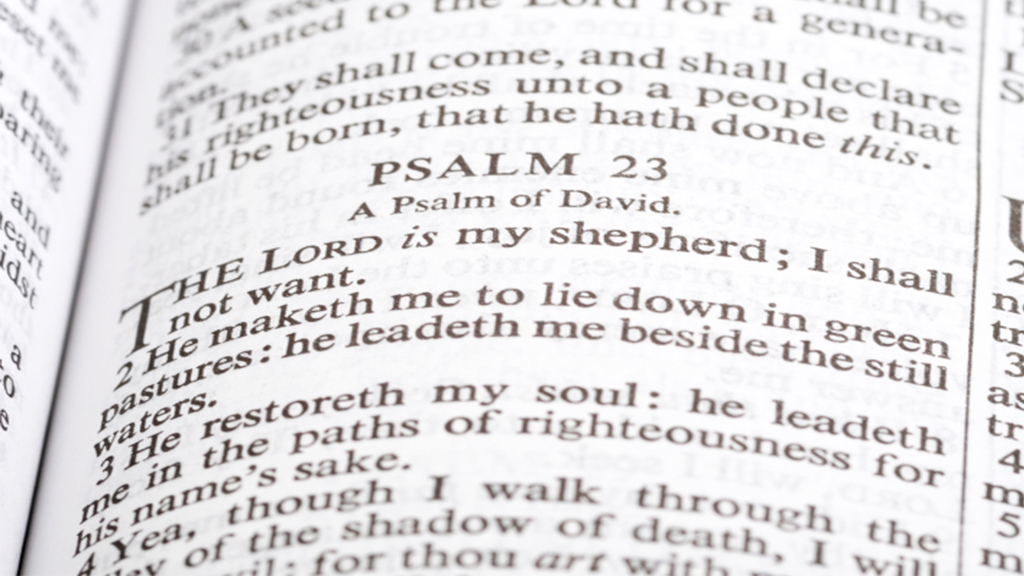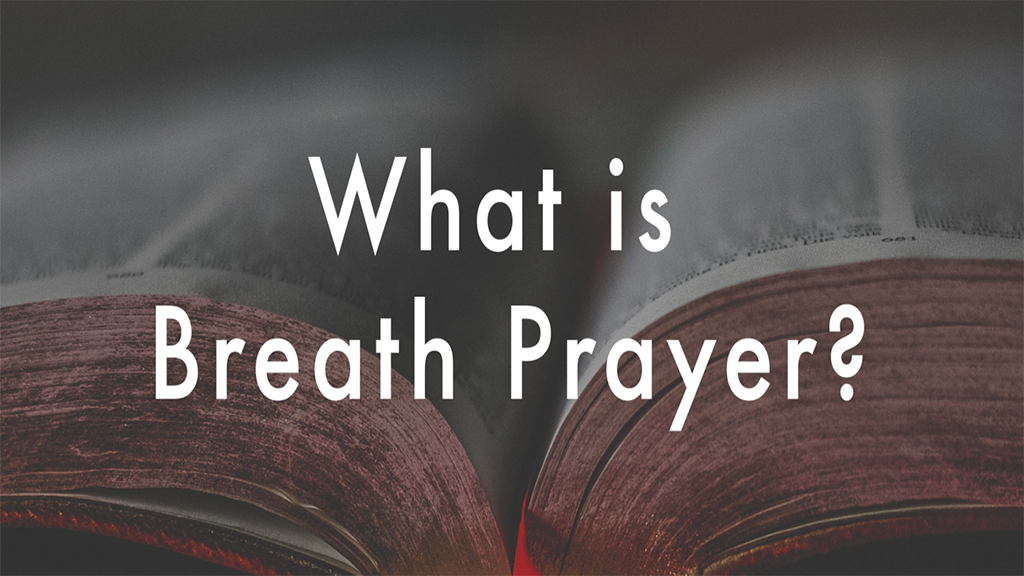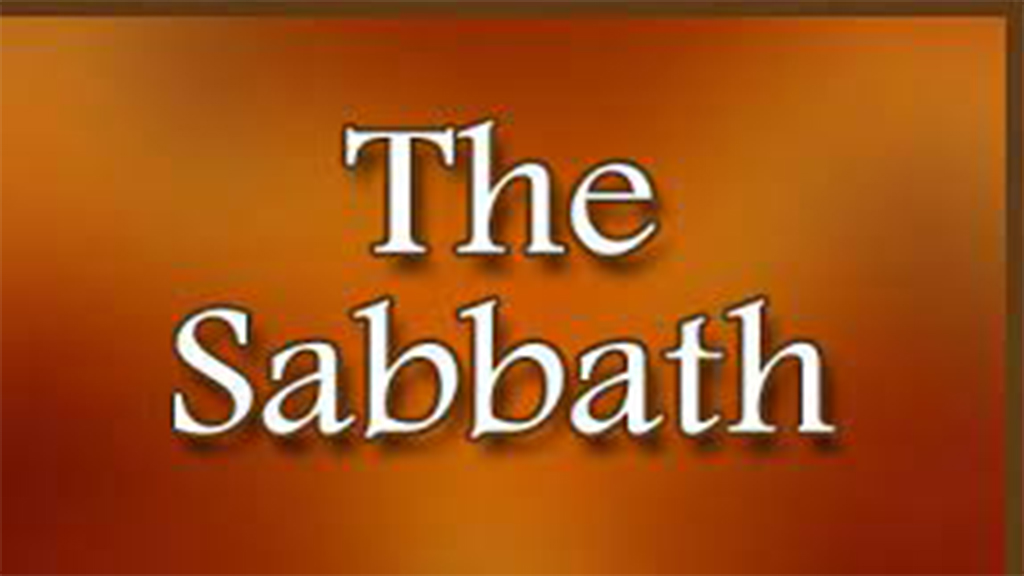Like An Athlete, We Need To Train So We Can Finish The Race, Fight The Good Fight.

Jesus quoted from the Psalms numerous times. Clearly he had spent a lot of time praying through the Psalms – probably, like other Jews in his day, this is how he learned to pray. Jesus lived the Psalms. Often he identified his life experiences in those of the Psalmist. Furthermore, Dietrich Bonhoeffer says that the Psalms actually are the prayers of Christ:
The Man Jesus Christ, to whom no affliction, no ill, no suffering is alien and who yet was the wholly innocent and righteous one, is praying in the Psalter through the mouth of his Church. The Psalter is the prayer book of Jesus Christ… He prayed the Psalter and now it has become his prayer book for all time… Those who pray the psalms are joining in with the prayer of Jesus Christ, their prayer reaches the ears of God. Christ has become their intercessor (Life Together, p. 45-46).
Jesus fulfilled the Psalms
There are many Messianic prophecies in the Psalms that Jesus lived out, proving that he is God's Messiah. And Jesus fulfilled all of the Psalms in the sense that he perfectly completed the righteous and honest life of prayer that they express. For instance, Jesus is the Psalm 1 Man.
In his humanity Jesus relied on the Psalms for comfort, wisdom, and worship in many different experiences. He needed the psalms because he felt all the same basic struggles and temptations that we do.
The most moving example of Jesus praying a Psalm is when he hung on the cross, suffering for our sins, and he cried out in a loud voice the heart-broken words of David from Psalm 22:1, "My God, my God why have you forsaken me?" (Matthew 27:46). This is the only time in the gospel accounts that Jesus prayed to his Father using the formal and distant name "God." He knew how it felt to be in pain and to cry out for God and yet feel alone. He knew what it was like to long for the Father's love and feel abandoned. He endured his darkest of all Dark Nights of the Soul on the cross for the joy of reconciling us to his Father (Hebrews 12:2).
Paul and Peter
The Apostle Paul also made use of the Psalms. He quoted the Psalms in his teaching (Acts 13:33), as did Peter (Acts 1:20), but apparently he also used them regularly in prayer as he encouraged us to sing psalms together (Colossians 3:16) and to speak to one another in psalms (Ephesians 5:19). In the first century since there were so few written scrolls of the Psalms that the way people would sing and speak psalms to one another was first to memorize and meditate on the them – praying them into their hearts – so that they could access them anytime.
A Person After God's Heart
Most of the Psalms were written by David, and perhaps this is why he was singled out with the affirmation, "David… is a man after my own heart" (Acts 13:22). Indeed the Psalms are the Bible's book of the heart in that they express emotion honestly and reverently.
The Psalms show us how to pray out in words (spoken or written) our deepest hurts and longings, our struggles that leave us anxious or angry, our confessions of guilt, and our joyful thanks and praise so that we share all of our life experiences with our God who listens and responds. We lay out whatever it is that we feel and then we put our confidence in God.
By praying authentically in the way of the Psalmist we learn to trust the Lord and worship him in all of our life circumstances – including the most painful of all, the Dark Night of the Soul, when, despite our desperate prayers in the midst of suffering, God's face remains hidden from us.
Benedictine Monks
The Prince of Peace Abbey in Oceanside, CA, which is a Benedictine monastery. The monks there join thousands of others from around the world to pray from the Psalms five times per day in their daily "divine office." Together they prayerfully chant the psalms as they keep cycling through the Psalter over and over.
Praying with Jesus
I have benefited from many ways of praying the Psalms, but the most important thing I do is to pray the Psalms with Jesus. As I pray the Psalms I approach them as the prayers of Jesus. Often the Psalms reminded of Jesus' life and words and this makes for fruitful meditation. The Psalms help me to learn to pray with Jesus and like Jesus; they help me to become a person after God's own heart in the midst of my daily life.
Praying with your Right Brain
I have enjoyed experimenting with praying the Psalms in ways that access the right side of my brain (nonverbal, intuitive, creative) and help me to connect more deeply with God. I sing Psalms (even though I don't know how to sing well!). I draw pictures of them, make collages, or find pictures on the Internet as illustrations (e.g., pictures of Jesus' face or his passion, or a king inviting me to approach his throne). I pray Psalms with my body – reading them out loud or on my knees or with my hands or as I walk, joy, or hike.
Another way I like to use the Psalms is to write my own psalm by journaling a personal prayer using the pattern of "honest faith" that the Psalmist models. For instance, in the Laments the Psalmist usually begins by venting his troubles and complaints and ends by looking to God and putting trust in his goodness. My favorite way to write in response to a Psalm is to compose a "prayer poem" to paraphrase a particular Psalm or a portion of it.
And when I come across a Psalm that doesn't relate to my own experience I can pray that Psalm for someone else.
My rhythm of life is pray from the Psalms morning, noon, and night, carrying a Psalm or verse from one prayer time to the next, like passing a baton in the relay race of faith, which is to practice God's presence continually and in all things.
From the Psalmists I've learned that morning and evening prayer are especially important. My morning Psalms focus on themes of rising with the sun, submitting the day to God, or offering thanks and praise to my Lord. My evening Psalms focus on reflecting on the day, confessing my sins, lamenting to God about a struggle, or watching and praying in the dark.
Pick the Psalm you're Drawn To
In contrast to the sequential approach I also pick and choose from different Psalms as needed (for myself or someone I'm interceding for). For many years I've found it helpful to find a Psalm that expresses my heart at that moment and let the prayer of the Psalmist and of Christ (many of the Psalms were prophetic of Christ and in each Psalm Jesus is already there praying!) become my prayer also.
Along these lines, I've found it very helpful to memorize a Psalm so that I can carry it with me like a "pocket lighter" (as Martin Luther taught) to warm my heart for prayer at any time as I go about my day.)
There are Psalms for seemingly every type of situation, emotion, and need. Here are eight categories of psalms and some beloved psalms that fit in those categories. These psalms form a "School of Prayer," teaching us the basic types of prayer. You can pray these psalms or use them as guides to write your own similar psalm:
-
Thanksgiving & Praise
- Psalm 57: God is glorious and loving – exalt him with a steadfast heart!
- Psalm 92: Pray and play on the Sabbath
- Psalm 95: To worship is to thank, praise, revere, listen, and obey God
- Psalm 100: Thanksgiving leads to praise
- Psalm 107: Give thanks in consolations and desolations
- Psalm 136: Give thanks – the Lord is good and his love endures forever
- Psalm 103-107, 111-118, 134-139, 145-150: Hallelujah Psalms
-
Wisdom
- Psalm 1: Live in the way of the righteous by delighting in God's Law
- Psalms 4 & 5: Learn the rhythm of evening and morning prayer
- Psalm 8: Worship your Creator and discover your belovedness as his creation
- Psalm 19: Listen to God in the wonders of nature and Word
- Psalm 119: Delight in God's Law
- Psalm 131: Practice simplicity and silence (Psalms 120-134 = "Pilgrim Psalms")
- Psalm 133: Practice spiritual friendship
- Psalm 139: Examine yourself in God's light
-
Confession & Forgiveness
- Psalm 32: Confess your sins and be blessed
- Psalm 38: In guilt and pain cry out for your Savior's help and answers
- Psalm 51: Confess your sin against God and be purified and restored
- Psalm 130: Wait for God's forgiveness like a watchman waits for morning
-
Longing for God (Salty Psalms to cultivate desire for God)
- Psalm 27: Seek the Lord as your "One Thing" – even in trials
- Psalm 42: In troubles thirst deeply for the Living God
- Psalm 63: Hunger for God with all your soul
- Psalm 73: Make God the strength of your heart and your portion forever
- Psalm 84: Yearn for the lovely courts of the Lord and invite others inside
-
Comfort & Encouragement
- Psalm 4: In distress you can be filled with God's love, joy, peace
- Psalm 16: Delight in God via saints, circumstances, and path of life
- Psalm 23: Grow with Good Shepherd through the soul seasons
- Psalm 91: In danger find refuge in God as a chic with Mother Bird
- Psalm 121: Trust in God's protection and care on your (or another's) journey
-
Laments (Sad times)
- Psalm 6: Pour out your tears and questions to God
- Psalm 31: In distress put your trust in God's presence
- Psalm 64: When verbally attacked hide in God and rely on his justice
- Psalm 102: In depression cry out to God and recall his power and care
- Psalm 142: Cry and complain to God and find that he's your portion
- Psalm 143: In troubles thirst for God's unfailing love and will
-
Anger at Enemies
- Psalm 35: When mistreated let the Lord be the one to fight for you
- Psalm 59: When slandered with lies trust the Lord as your defender
- Psalm 69: When being hated sinks you in mire express anger to God
- Psalm 70: When people seek to harm you cry out to God
- Psalm 109: When betrayed vent anger to God and rely on his love
-
Complaints to God (Dark Night of the Soul)
- Psalm 13: When God's face is hidden learn to trust him in your heart
- Psalm 22: When it seems God has rejected you praise him anyway
- Psalm 77: When you don't feel God's love meditate on his goodness
- Psalm 88: When you're in a dark pit and God seems angry cry out to him


















